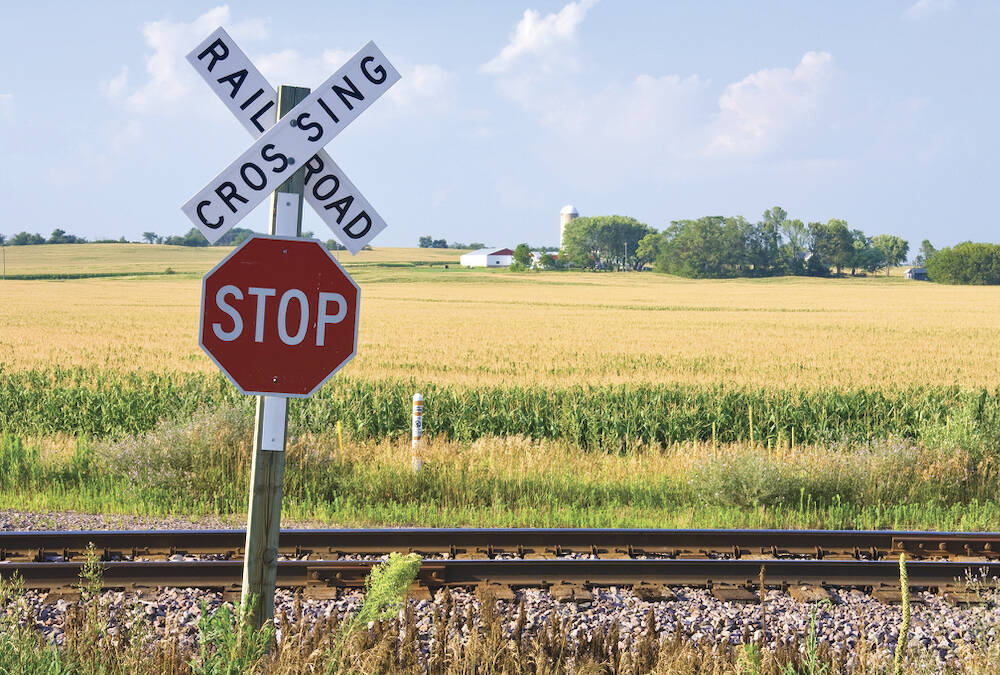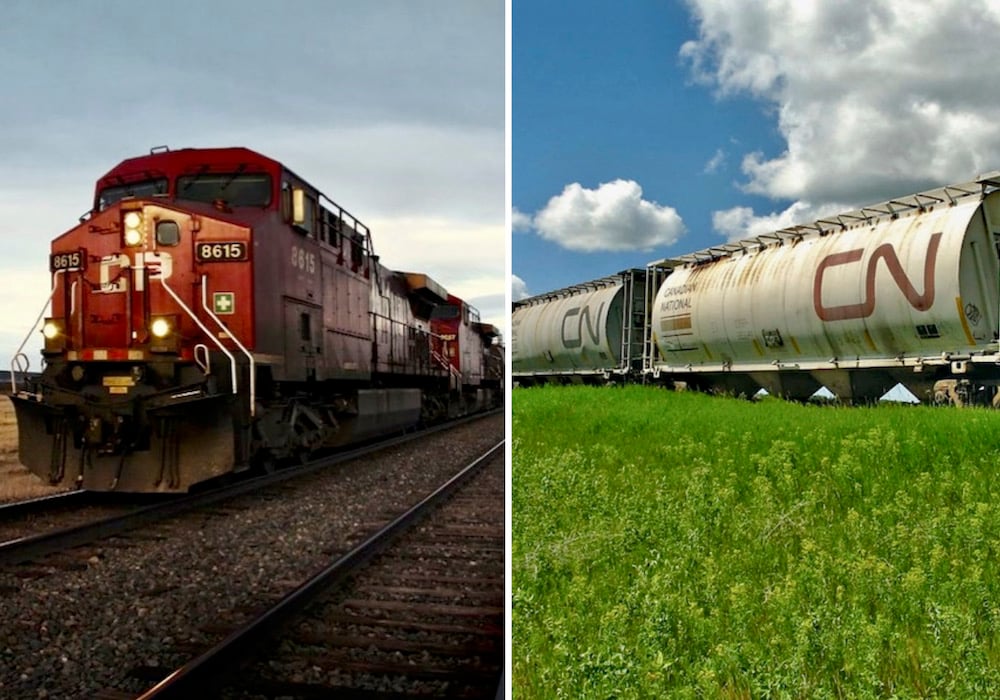Time is running out for a negotiated settlement for Canada’s railway labour dispute

As pressure mounts on the federal government to avert a rail strike, the reality of what a work stoppage would look like is beginning to sink in.
The countdown to the lockdown deadline set by the railways runs out at one minute past midnight tonight.
“The impact on Canadians of a full-country railway work stoppage, both CN and CP at the same time for all industries, is mammoth; it can’t be overstated,” said Wade Sobkowich, executive director of the Western Grain Elevators Association (WGEA), one of the agricultural groups that has signed on to the Stop the Strike letter writing campaign initiated by Pulse Canada.
Read Also

Senators Black, Robinson urge ministers to intervene in rail dispute
Senators Rob Black and Mary Robinson urged federal ministers to intervene to prevent a rail strike or lockout according to a letter posted to social media this morning.
From a grain shipping perspective, Sobkowich said there are several factors that will affect farmers directly.
To get the best price, grain shipping companies try to move as much grain as possible before the Australian harvest comes off in January and February, when global prices tend to drop. If that window is shortened, it will mean farmers will get paid less for their grain.
A lengthy strike could also mean cash-flow headaches for producers.
“Farmers don’t get paid until they deliver,” said Sobkowich. “So that’s a significant impact.”
Sobokwich said there are other less quantifiable effects a strike would have, like reputational damage.
“When you talk to your buyer in Indonesia and you say you’re not going to be able to deliver, that buyer is a mill, and they want to keep their mill humming along, so they’re going to try and source product from another country,” said Sobkowich.
The question of reputational damage was recently addressed at the Canadian Beef Industry Conference in Saskatoon on August 20. At the foreign trade committee meeting, Nathan Phinney, Canadian Cattle Association president, brought up the question.
In response, the chief trade negotiator for Agriculture and Agrifood Canada (AAFC) said that at times when the supply chain is compromised, like the flooding in 2022 that caused delays, he definitely gets questions about whether shipments will be affected, but he hasn’t received any calls about this pending strike.
However, during a press conference set up by the Stop the Strike campaign, Dean Roberts, vice chair, Canola Council of Canada, brought up a letter signed by 35 US industry groups sent to the Prime Minister’s office on August 20 as a sign that Canada’s trading partners are in fact taking notice.
“They’re concerned about the integrated supply chains between our two countries and how exposed agriculture is to this disruption,” said Roberts.
Since the Stop the Strike campaign was launched, agricultural groups from across Canada have added their weight to the campaign. Independently, senators, municipal groups, and industry groups have joined in the chorus, urging the government to intervene and ensure a speedy end to the dispute.
Sobkowich said he’s hopeful that the efforts of these groups will have the desired impact, but added that there are a lot of issues and agendas at play.
“We saw the federal government impose binding arbitration regarding the WestJet strike, and so we’re hopeful that they will do the same thing in this situation,” he said.
However, Sobkowich noted that there is a difference between the two events in terms of optics. During the Westjet strike, Canadians were stranded at airports. The effect was immediate. But with this labour dispute, the effects will begin to show up later.
“They will see increased prices, a lack of product availability, and that sort of thing, but it’s somewhat masked because of the way goods are transacted throughout the supply chain,” he said.
But last week, in a letter to the Teamsters Canada Rail Conference (TCRC), the union representing employees of the railways, Minister MacKinnon said that he would not intervene.
“I trust that with continued effort, an agreement can be achieved promptly,” wrote MacKinnon in the letter that was posted to the Teamsters’ website. “The government firmly believes in the collective bargaining process and trusts that mutually beneficial agreements are within reach at the bargaining table.”
With only hours left to find common ground, time is running out for the parties to reach a deal.
Source: Farmtario.com

